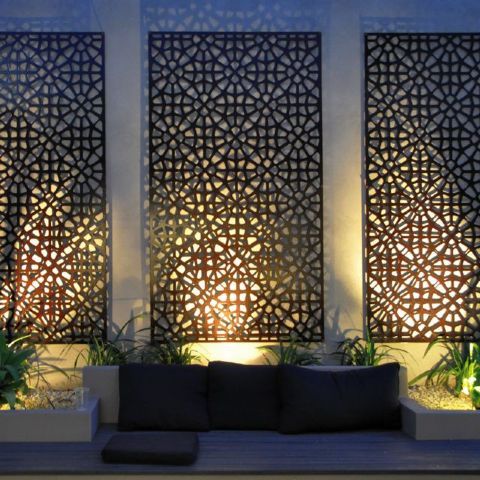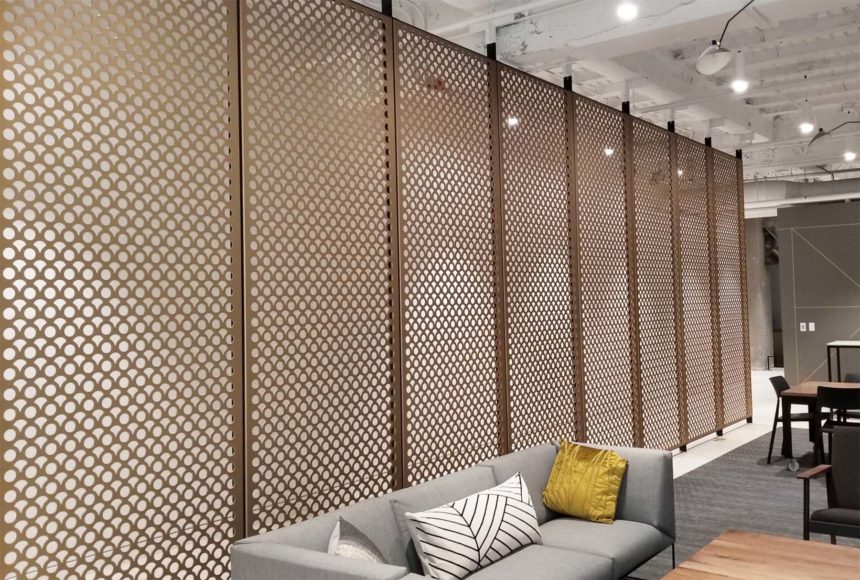Decorative screens and panels are more than just functional items; they are essential elements that can dramatically change the ambiance of a room. I remember the first time I installed a decorative screen in my living room; it completely transformed the space, adding a touch of elegance and style. In this comprehensive guide, we’ll explore everything you need to know about decorative screens and panels, including their types, materials, benefits, installation tips, and much more. Whether you’re looking to enhance your home, office, or outdoor area, decorative screens and panels are a fantastic choice.
What are Decorative Screens and Panels?
Decorative screens and panels are versatile architectural elements used in interior design. They can serve various purposes, such as dividing spaces, providing privacy, or simply adding aesthetic appeal. These features can be made from a variety of materials, including wood, metal, fabric, and glass, allowing for a wide range of styles and designs.
Types of Decorative Screens and Panels
1. Room Dividers
Room dividers are a popular choice for those looking to create separate spaces within a larger area. They come in various styles, from folding screens to fixed panels.
2. Privacy Screens
Privacy screens are designed to offer seclusion without completely closing off an area. They are perfect for patios, balconies, or even inside your home.
3. Wall Panels
Wall panels can add texture and dimension to your walls. They can be used to create feature walls or to enhance the overall design of a room.

4. Outdoor Screens
Outdoor decorative screens are specifically designed to withstand the elements. They can provide shade, privacy, and a decorative touch to outdoor spaces.
Materials Used in Decorative Screens and Panels
The choice of material is crucial when selecting decorative screens and panels as it influences both the aesthetics and durability. Here are some common materials:
1. Wood
Wood offers a warm and natural look, making it a popular choice for indoor use. It’s also relatively easy to work with, allowing for intricate designs.
2. Metal
Metal screens are modern and sleek. They are incredibly durable and can withstand outdoor conditions, making them suitable for gardens and patios.

3. Fabric
Fabric panels can create a soft and inviting atmosphere. They come in various colors and patterns, allowing for personalization. However, they may require more maintenance.
4. Glass
Glass panels can provide an open feel while still offering separation. They are excellent for showcasing beautiful views but can be more fragile than other materials.

Benefits of Decorative Screens and Panels
Installing decorative screens and panels offers various advantages that can enhance the functionality and aesthetic of your space.
1. Aesthetic Appeal
Decorative screens and panels can serve as stunning focal points in any room. They enhance the overall design and can reflect your personal style.

2. Space Division
They allow you to create distinct areas within a larger space without the need for permanent walls, offering flexibility in your layout.
3. Privacy
Privacy screens can shield areas from view, making them perfect for balconies, patios, or spa-like retreats in your home.

4. Versatility
With various designs and materials available, decorative screens and panels can be used in numerous settings, from modern apartments to rustic cabins.
How to Choose the Right Decorative Screen or Panel
Choosing the right decorative screen or panel involves several considerations:

1. Purpose
Determine whether your primary goal is privacy, space division, or decorative appeal. This will help in selecting the right type.
2. Style
Consider the overall style of your space. Choose designs and materials that complement your existing decor.

3. Size
Measure the space to ensure the screen or panel fits well without overwhelming the area.
4. Budget
Think about how much you are willing to spend. Decorative screens and panels can vary greatly in price based on materials and complexity of design.
Installation Tips for Decorative Screens and Panels
Installing decorative screens and panels can be a straightforward process. Here are some tips based on my personal experience:
1. Measure Accurately
Before purchasing, measure the area where you plan to install the panel. This will help to avoid any size discrepancies later on.
2. Choose the Right Hardware
If you’re installing a movable screen, invest in high-quality hardware to ensure it operates smoothly.
3. Consider Professional Help
If the installation seems daunting, consider hiring a professional, especially for more complex designs or materials.
4. Maintenance
Depending on the material, set up a regular maintenance routine. For instance, wooden screens may require periodic sealing or staining.
Comparison of Popular Decorative Screen Materials
| Material | Durability | Maintenance | Aesthetic | Cost |
|---|---|---|---|---|
| Wood | Moderate | Medium | Warm, Classic | $$ |
| Metal | High | Low | Sleek, Modern | $$$ |
| Fabric | Low | High | Soft, Cozy | $ |
| Glass | Moderate | Medium | Elegant, Open | $$$ |
Common Questions About Decorative Screens and Panels
1. Can I use decorative screens outdoors?
Yes, many decorative screens are designed for outdoor use. Just ensure they are made from durable materials that can withstand weather conditions.
2. How do I clean decorative fabric screens?
Fabric screens can typically be vacuumed or spot cleaned. For deeper cleaning, refer to the manufacturer’s instructions.
3. Are decorative screens and panels easy to install?
Most decorative screens and panels are relatively easy to install, but it depends on the complexity of the design and the type of hardware used.
4. Can decorative screens provide sound insulation?
While they may not be specifically designed for soundproofing, certain materials can help reduce noise levels to some extent.
Pros and Cons of Decorative Screens and Panels
Pros
- Enhance aesthetic appeal
- Flexible space division
- Available in various styles and materials
- Easy installation and modification
Cons
- Some materials require high maintenance
- Not all options provide complete privacy
- Quality can vary significantly among products
Conclusion
Decorative screens and panels are a fantastic way to enhance any environment. They offer a blend of style, functionality, and versatility that can fit virtually any space. Whether you’re looking to create privacy in your home, divide a large office space, or just add a unique decorative touch, these elements can help you achieve your goals. Remember, the right choice depends on your personal style, budget, and the specific needs of your space. As I found out in my journey of decorating my home, the right decorative screen can make all the difference!